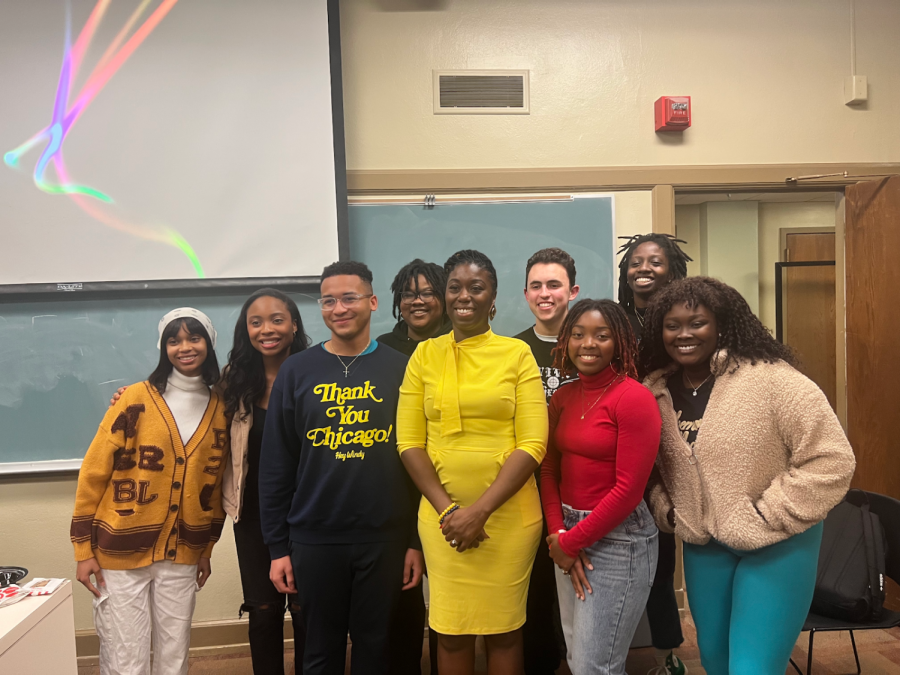Olivia Hill, a retired transgender Vanderbilt employee, reached a settlement with Vanderbilt nearly three months after suing the university on the basis of sex, gender identity and disability discrimination in the workplace. Hill said she is “very pleased” with the terms of the settlement.
Hill said she is legally prevented from discussing its terms and “the dollar amount.” However, she stated that the “living hell” that she allegedly endured was not in vain. She said she believes her story will help other transgender people in the Vanderbilt community and that the ability to be her true self is worth it all.
“I honestly, truly feel that some real changes will be made in the near future,” Hill said. “If one trans person stands up five years from now and has an easy road because of something I did, then every bit of what I’m going through is worth it.”
Hill held a variety of roles throughout her nearly-26-year career at Vanderbilt’s Power Plant. She announced her retirement from Vanderbilt in Facebook and Instagram posts on Dec. 27, 2021, the same day that the case was closed.
“We believe that justice has been served and that Vanderbilt got the message loud and clear,” Abby Rubenfeld, Hill’s lead attorney, said in a Jan. 25 PR Newswire press release.
Out of the seven alleged perpetrators named in the lawsuit, three—Tim Cook, Tim Baker and Gary Merritt—are not listed on Vanderbilt’s faculty directory as of print. Currently, Cook’s LinkedIn profile reads that he is the “former plant manager” of the Power Plant. On Oct. 28, The Hustler received an automatic reply from Cook’s email stating that he is no longer employed by the university. Tim Baker and Merritt are both listed as Power Plant employees in the lawsuit, but The Hustler was unable to find up-to-date contact information for them.
“Tim Baker, repeatedly called Ms. Hill by her former male name and by ‘sir’ to her face, telling her that he ‘doesn’t see or accept’ her as a woman,” the lawsuit reads. “In August 2018, Ms. Hill learned that her direct supervisor, Tim Cook, had been discussing her transition with engineers and contractors with whom she works, and was using terrible slurs to describe her, such as ‘it,’ ‘trans freak,’ and ‘weirdo,’ among other names.”
The lawsuit also states that Mark Petty, assistant vice chancellor for Plant Operations, engaged in some of the discriminatory instances Hill allegedly faced. In requesting a comment on the settlement, The Hustler received two automatic emails from Petty which read that he is “out on leave.” The emails directed inquiries to Mike Perez, associate vice chancellor and chief facilities officer, and Lis Wyatt, director of operations in Plant Operations, neither of whom have responded to The Hustler’s emails.
“[Petty] reprimanded her and told her she should ‘leave her emotions at home and just do her job,’ but did nothing about the harassing treatment Ms. Hill was receiving,” the lawsuit reads. “[Petty] continued his harassment relentlessly, doing such things as telling Ms. Hill that she has big feet and looks strange in women’s clothes and asking her after a work meeting whether she still shaves her chest.”
The Hustler received a similar automatic email after contacting Anita Jenious, director of the Equal Opportunity and Affirmative Access Office (EOA), which stated that she, too, is “out on leave.” In the lawsuit, Jenious is listed as having been involved in Hill’s EOA proceedings from December 2019 through May 2020. The email directed inquiries to the EOA, which has not yet responded to The Hustler’s request for comment.
“Ms. Hill was advised by Ms. Jenious, the head of the Vanderbilt [EOA], that the investigation was unable to corroborate her claims and that is why it was dismissed with no action,” the lawsuit reads. “That was not true: a separate, unrelated sex discrimination complaint filed by another female employee from the same Facilities Department did include specific reference to as least one of the incidents reported by Ms. Hill.”
Mitch Lampley, director of engineering and technical support for the Power Plant, as well as Jerry Baker and Ronnie Richard, special equipment tech journeymen for the Power Plant, were also named in the lawsuit as allegedly discriminatory co-workers of Hill. Cook, Lampley, Jerry Baker and Richard did not yet respond to The Hustler’s requests for comment.
“Another time, Ms. Hill was accosted at work by a salesman who pulled her close to him, looked down her shirt at her breasts and said, ‘you have pretty eyes;’ when Ms. Hill reported this incident to Mr. Lampley, one of her superiors, he dismissed her by saying ‘oh, that’s just how he is,’ and then did nothing about it,” the lawsuit states. “One employee, Ronnie Richard, in referring to Ms. Hill in front of other employees, said ‘that freak is not my boss and I will not listen to it.’”
The Hustler received a statement from the university regarding the case on Jan. 26, which mirrored its Oct. 26, 2021, statement about the same topic.
“The case involving Ms. Hill has been resolved and we reached a confidential settlement,” the statement reads. “We continue to take steps to help our employees feel respected, included and safe in their work environments, including providing resources for employees who identify as transgender, genderqueer or non-binary, as well as the managers who support them.”
Hill said that her lawsuit brought to light areas of campus that were not fully abiding by the non-discrimination policies put forth by the university. She stated that these policies are “amazing” and were not the root of her legal allegations. Stephanie Mahnke, recently-hired director of the Office of LGBTQI Life and the K.C. Potter Center, did not yet respond to The Hustler’s request for comment regarding the case.
“The problem is in them [university employees] living by the policies they already had,” Hill said. “There are a lot of areas [at Vanderbilt] that do, but a lot of pockets that don’t.”
At the start of her transition, Hill said she largely faced transphobia and later began to experience more sexism throughout her personal and legal journey. In this way, she stated that the settlement also made a difference in advocacy for gender equity.
“The fight was not just for me as a trans woman but for every single woman who’s been told, ‘Be quiet,’” Hill said.
Hill told The Hustler that she is open to reconnecting with some of her former colleagues at Vanderbilt in the wake of the settlement, calling the university her “home.”
“There’s an awful lot of great, wonderful human beings at Vanderbilt University, and most of them I will miss,” Hill said.
In retirement, Hill said she is exploring potential opportunities in local politics and public speaking for the Human Rights Campaign.
“I want to make a presence and representation for trans folks,” Hill said. “We belong at the table, too.”










